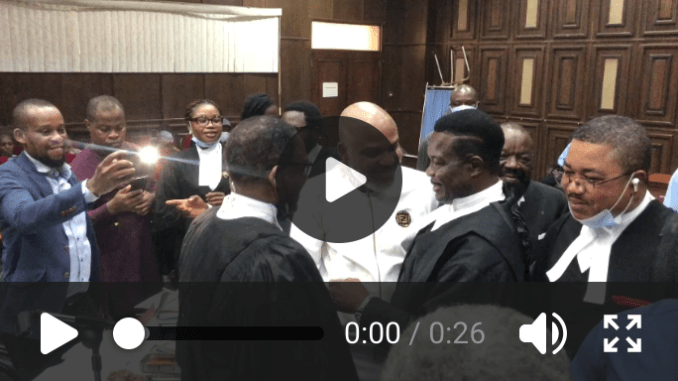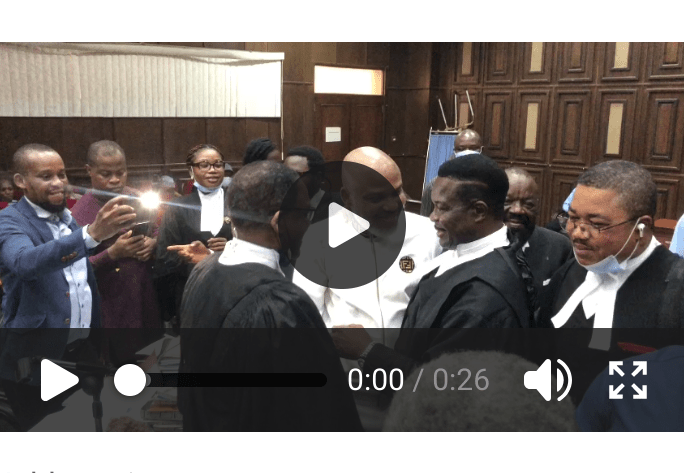
In what appears to be a new twist in the ongoing trial of the leader of the Indegenous People if Biafra (IPOB), Nnamdi Kanu, the federal government is set to re-arraign him on an amended six-count treasonable felony charges.
The amendment came on a day trial Justice Binta Nyako fixed to hear another application in respect of the trial
Earlier, Kanu had filed an application to be released on bail, pending the determination of the charges against him.
The federal government had in the amended charge, listed some lawyers Mr. Ifeanyi Ejiofor and Mr. Maxwell Opara, as accomplices of the defendant.
The lawyers, they alleged were constantly in contact with Kanu, after he jumped bail and fled the country.
Trial Justice Binta Nyako had on April 8, 2022 struck out eight out of the 15-count treasonable felony charges the federal government preferred against Kanu.
In her verdict, Justice Nyako held that the charges were mere repetitions that did not disclose any offence that could be sustained by the proof of evidence before the court.
The government had in the counts that were struck out, alleged that Kanu had through his broadcasts, incited members of the public to not only stage a violent revolution, but to attack police officers and also destroy public facilities in Lagos state.
While the court threw out counts 6, 7, 9, 10, 11, 12,13 and 14 of the charge, it okayed Kanu’s trial on counts 1, 2, 3, 4, 5, 8 and 15.
The ruling followed an application Kanu filed to quash the entire charge against him, which he insisted was manifestly incompetent and legally defective.
The IPOB leader, through his team of lawyers led by Chief Mike Ozekhome (SAN), argued that the court lacked the jurisdiction to try him on the strenght of an incompetent charge.
Ozekhome (SAN), further told the court that his client was “unlawfully, brutally and extraordinarily renditioned from Kenya without his consent”.
He further argued that since some of the allegations federal government levelled against Kanu, were purportedly committed outside the country, the high court, therefore, lacked the jurisdiction to entertain the charge.
“The charges appears to give this court a global jurisdiction over offences that were allegedly committed by the Defendant, without specifying the location or date the said offences were committed,” he said.
The Federal High Court Act he added stipulate that such charge must disclose specific location where the offence was committed.
Ozekhome further contended that Kanu could not be charged with belonging to an unlawful organisation since the action of federal government, in proscribing the IPOB, is still subject of legal dispute at the Court of Appeal and therefore subjudice.
He then urged the court to dismiss the charge, as well as to discharge and acquit the defendant.
Raising an objection, federal government’s lawyer, Mr. Shuaibu Labaran, urged the court to allow the prosecution to open its case.
He argued that Kanu’s application would touch the substance of the case that is yet to be heard.
“The position as at now is that the IPOB is a proscribed organisation which was duly proscribed through the due process of law,” he said.
He argued that Section 32 of the Terrorism Prevention Act imbued the court with the requisite jurisdiction to handle the trial.
On Kanu’s bail request, Ozekhome, maintained that the amended charge contained bailable offences, while FG’s lawyer, Labaran, argued that the defendant betrayed the previous discretion the court exercised in his favour when he jumped bail and escaped from the country.
He argued that it was owing to Kanu’s conduct that the court revoked his bail and issued a bench warrant for his arrest.
